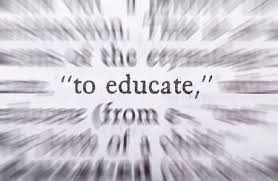The Greatest Assistant Coaching Article Ever Written (i.e. because we think it’s the only one): 50 of the best Tips on how to be a World Class Assistant Coach.

By Lindsay Gaze, Michael Foley, Dave Claxton, Craig Tiley, Scott Johnson, Bill Sweetenham, Andrew Friend, Keith Davies, and Wayne Goldsmith
Foreword:
Leading international Rugby Coach (and former Wallabies Assistant coach) Scott Johnson and I were exchanging emails about coaching. Scott said, “You read a lot about coaching and plenty about being a head coach, but where is there something written about being a great assistant coach”.
I accepted the challenge, contacted some coaching friends and colleagues and this is what we came up with.
Sincere thanks to Lindsay, Michael, Dave, Craig, Scott, Bill, Andrew and Keith for their ASSIST-ANCE.
So What Does it Take to be a Great Assistant Coach?
- Communicate – communicate – communicate.
- Don’t be afraid to be in conflict with the head coach, (in the appropriate forum), if the issue you believe in can help grow the program and improve performance.
- Have an open mind to change, no comfort zones, no complacency and accept no compromise.
- Have an outstanding knowledge of the sport and be prepared to share that knowledge.
- Publicly share the same philosophy as the head coach and together develop, enhance and grow that philosophy.
- Be prepared to assume the head coaching position in case of non-attendance of the head coach but convey the same message with the same intent as if the head coach was still present.
- Collaborate with the head coach on a partnership basis in the development of the team strategies and individual player development.
- Accept and understand that no coach of any sport competing at the highest level can manage all tasks without specialist assistance in a number of elements and as such encourage the expression of the views, ideas, beliefs and contributions of players, coaches and staff.
- Be prepared to accept and welcome the contribution made by other additional assistant coaches within your team structure and do not assume that your role is superior in importance.
- While financial rewards are important, be more committed to the progress and performance of individuals and the team rather than be dollar driven.
- Be aware that if the Club management decides to fire the head coach and as assistant coach you might be an unfortunate victim of the decision, you should still support the head coach.
- If offered a head coaching position with another organisation do not seek or accept such a position without first consulting with your current head coach (and club management).
- Strive to learn more about coaching, your sport and your role as assistant coach, recognising that no matter how much you might know there will always be more to learn.
- Meet with the Head Coach regularly (daily) to make sure you are always on the same page.
- Clearly define and understand your role, your responsibilities, accountabilities and limits.
- Discuss, argue, relate, disagree on anything and everything with the head coach but develop a relationship where you can challenge each other to find the common ground, new ideas and move forward.
- Attack everything you do with a united front. If you can, the effect on the players will be double pronged and more effective. Players will be more likely to develop confidence in the overall coaching team’s methods and philosophy if they see consistency across the philosophies and values of the head coach and the assistant coach.
- Develop a vocabulary and culture of key similarities that all coaches in the team use consistently to reinforce your methods and so that players understand and respect that a strong professional relationship exists in the coaching group. Players will then feel comfortable in approaching any of the coaching team for the answers to their problems.
- Resolve conflicts quickly and appropriately. Don’t leave the coaching environment with issues unresolved and conflicts left hanging.
- Coach using the 8 “Cs” of coaching – composure, clarity, communication, certainty, confidence, compassion, creativity and calm.
- Because you are an assistant coach under one particular head coach, it doesn’t mean you have an excuse to stop learning from any appropriate source. You probably got where you are by communicating and learning from hundreds of sources: never lose that basic instinct, the passion and desire to learn.
- Be a good listener/observer to players but only report what is relevant and necessary to the Head Coach.
- Be the best prepared Assistant Coach in skills development.
- Be friendly with players in social gatherings but retain an appropriate professional distance – and know where the limits are.
- Support the Head Coach in public at all times regardless of the pressure or media scrutiny of the situation.
- Do not allow club administration or sporting bureaucracies to compromise you and to destabilize Head Coach.
- Have excellent working relations with all support staff.
- Have good synergy with all players in particular the younger athletes and emerging stars.
- Have a strong interest and knowledge of player’s outside interests, family/education etc.
- Keep up with the latest technology in computing, communications, sports science and sports analysis.
- Develop outstanding recruiting skills – help the head coach sustain the competitiveness of the team.
- Have an excellent current knowledge of all opponents’ individual and team strategies to allow you to have intelligent, informed input to your own team game plans. Head coaches look for an assistant coach to demonstrate initiative.
- Don’t offer “passive” support – be active in your support of decisions and philosophies.
- Maintain unquestionable trustworthiness – trust is the cornerstone of any great relationship and unconditional loyalty should be in the first line of the contract of every assistant coach.
- Dress professionally and appropriately at all times.
- Publicly and privately be positive and always put the organisation first – no public or private personal player or coach criticism.
- Manage and administrate as if it’s your own money.
- Pay great attention to detail: the head coach has a strategic overview of all team issues – you are the person he / she relies on for detail.
- Develop sport specific skills and knowledge that are world-class and even beyond global standards.
- Maintain in-depth knowledge of medical & strength & conditioning profiles of each player, to assist in player development, training planning, strategy development and tactical plays.
- Be innovative and creative: help create the future.
- Develop strengths where the programme or Head Coach has weaknesses.
- Write workouts and training sessions every day for yourself and offer them to the Head Coach for comment, feedback, learning, growth and development.
- Develop a programme that is superior in every way possible and help to incorporate policies and protocols of the Head Coach and programme.
- If you want to be a Head Coach, set yourself a goal and a time frame to achieve it. Be the best assistant coach you can be, learn, grow and take on the challenges and opportunities of leadership on your own when the right opportunity presents.
- Offer appropriate positive comments to the Head Coach if he / she does something very well – head coaches are human too yet rarely receive positive praise from anyone.
- Do more listening than speaking.
- Be the eyes and ears for the head coach and alert him / her to potential issues before they develop.
- Recognise the times that the head coach is under pressure and look to take some of his / her workload.
- Live the team values– don’t just talk about them – and set an example for the players to follow.
Being an assistant coach is a challenging, rewarding and inspiring role – one which is often overlooked as an integral role in the success of the team.
Wayne Goldsmith – with a lot of help!


3 Comments
stavro · February 17, 2011 at 4:41 am
i am an assistant coach myself and i believe that most of the points you have are spot on and make a lot of sense. always treat others the way you would like to be treated and this article is so true for all assistants that want to be head coaches.
Wayne Goldsmith · February 18, 2011 at 8:41 am
Thanks Stav.
Assistant coaches are like apple trees…give them “food and water” (in this case information, support and opportunity), give them space to grow and with time and patience they can produce not just “fruit” but the seeds for future generations.
Thanks again,
WG
Why Assistant Coaches are Crucial for a Successful Team - BenchBoss · November 2, 2022 at 1:40 am
[…] into consideration before making an informed decision that includes different perspectives. The balance between conflict and partnership is key for a good coaching staff. There hasn’t been a successful head coach who tried doing […]